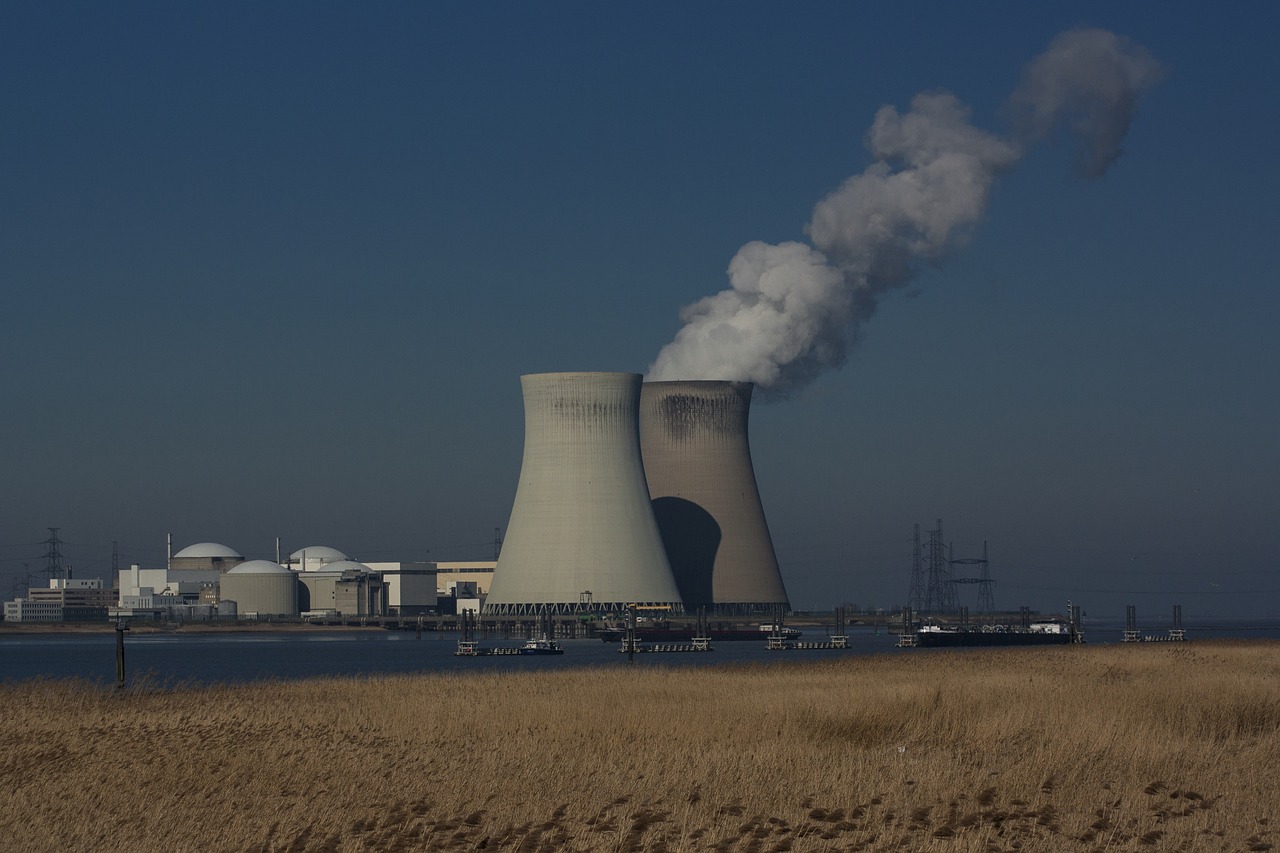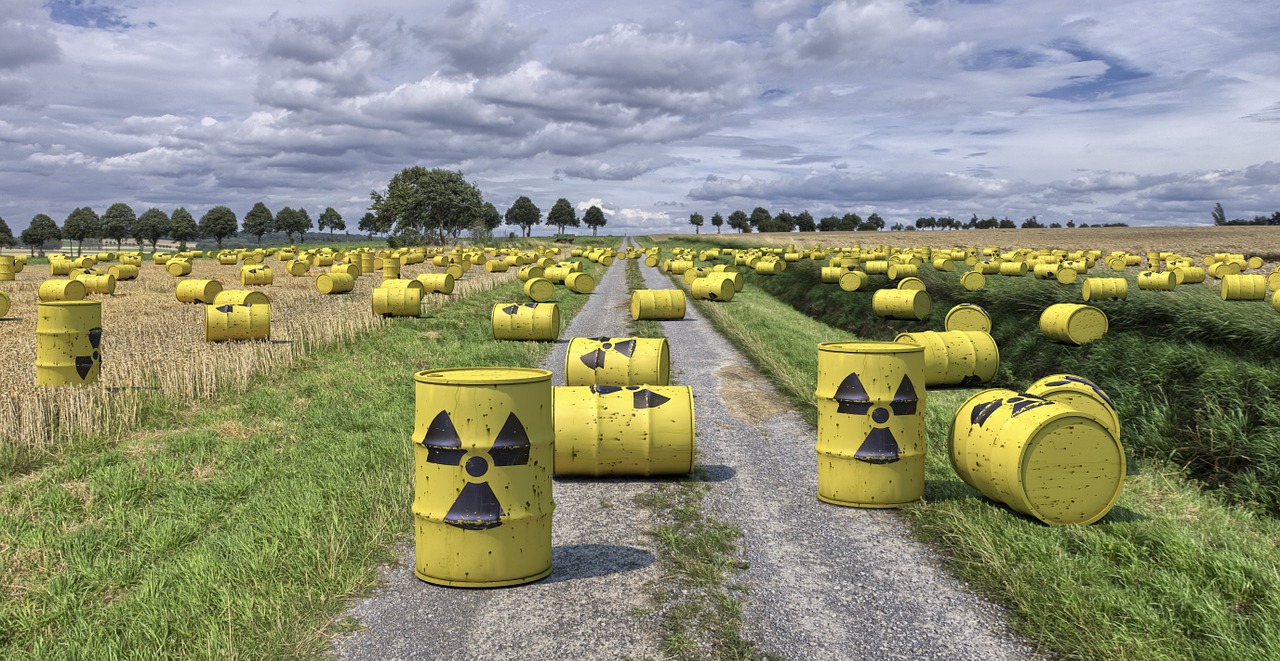When we go in detail about each kind of pollution, the facts may seem very surprising and it is also wondering to know about nuclear pollution. Many people ask does nuclear energy cause pollution. The answer is a big, bold YES. Here, we discuss a lot about what is nuclear pollution, its causes, effects and also prevention. Dig deep into these topics and know more and more about nuclear pollution. The after effects of nuclear pollution are even more dangerous than you could even dream about. What are we doing to this beautiful world?
Earth has provided us with so many resources. What we are giving in return? As the saying goes give and take, earth may kick back at some point of time for what we do to her. Exploiting the resources is not only what we do, we also pollute the planet so deeply and badly. Let us see now what is nuclear pollution and effects.
Radiation is a term given for waves caused by electromagnetism and high energy particles.
Well known electromagnetic waves are radio waves, light, infrared rays, UV rays, X rays, Gamma rays. These are well known and are used extensively in the fields of communications, industry, medicine and research.
Radioactive substances have High energy particles which are tiny bits of matter that are made to move at high speeds releasing nuclear radiation. There are about 50 naturally occurring radioactive substances and More than 2000 man-made ones. There are three kinds of radioactive radiation – alpha particles, beta particles and gamma radiation.

Another kind of radiation we face each day is cosmic radiation. This is the radiation that reaches us from outer space but is filtered out to a large extent by the layers of atmosphere that surrounds our earth
Contamination of the atmosphere by radiation and radioactive particles is called nuclear pollution
CAUSES OF NUCLEAR POLLUTION
Most activities that involve radioactive substances have potential to contaminate the environment .these include
- Nuclear weapons testing-
Beginning with the Second World War when Japan was subdued after the use of the nuclear bombs on the cities of Hiroshima and Nagasaki, countries have been in the race to develop their own nuclear arms, in the name of defence, but more to threaten rival nations. These were led by US, Russia, Britain, France and China. Nowadays N. Korea, Iran and many of the developing countries are equipped to build these weapons as well.
Testing the weapons involves explosions is the atmospheric layer called stratosphere. The exploded debris emitting radiation then falls back to the earth. Some of the radiation is absorbed by our atmosphere. But some of it reaches the earth falling on areas that are far away from the site where the weapon was released initially. This is called Fallout. When these particles settle on the vegetation and are consumed by animals they enter into the food chain. When fallout settles over the sea, the ecosystem of the sea gets affected and again entering the food chain.
- Nuclear Power Plants
Intense Nuclear energy from radioactive fuel is used to heat water to steam. The steam is then used to turn the turbines that in turn work the generators to produce electricity. Small amounts of radiation are released during this process into the water which may then dispose off indiscriminately causing nuclear pollution.
- Improper disposal of spent nuclear fuel.
Spent nuclear fuel contains very active radioactive atoms that remain so sometimes almost for 600yrs or more. These must be disposed of in a very careful manner, with strict regulations in well designated spaces. But the fact is many governments tend to approve of dumping nuclear fuel as far from their country as possible. The favourite dumping ground of many countries was the Pacific Ocean. Greenpeace an organisation dedicated to preserving the environment and saving the earth from pollution has brought attention to this activity and opposes it with fervour.
Some plants store spent fuel in underground water pools as these release a high amount of heat and need to be cooled down. There is always the danger of seepage into the land nearby, contaminating ground water and surrounding lands.
On a smaller scale is the radioactive waste that is produced in diagnostic Imaging in Health sector.
- Accident/Damage to Nuclear power plants
This most famous of these was the Chernobyl Nuclear Disaster in Russia in 1986. The fallout of this accident was felt over three countries- Russia, Ukraine and Belarus. The area surrounding the reactor is still polluted and not suitable for inhabitation or farming.
The other more recent accident was the Fukushima Daichii nuclear disaster on March 11th, 2011. An earthquake followed by a tsunami caused the main reactors and supplementary generators severe damage. Inadequate preparation to deal with an incident of this scale was also a factor that leads to hydrogen explosions and the seepage of radioactive material in the ground water.
Effects of Nuclear Pollution
The effect of nuclear pollution is seen on every organism in the environment from the bacteria to plants to human beings. Nothing is spared.
- The immediate and closest to the source, experience Radiation Sickness. In small doses of 75-200 rems. One experiences vomiting, fatigue and loss of appetite. At higher exposures of 300 rem and more changes in the blood cells and bleeding occurs. Above 600 rems there is loss of hair, loss of immunity usually resulting in death in a few days to weeks. Radiation causes changes in the cell and gene structure of rapidly multiplying cells of the body, such as bone marrow, skin, intestines, lymphoid tissue and embryo.
- Those exposed from a distance may not show any immediate symptom. But the tendency to develop various forms of cancers and have a shortened life span is seen. Radiation also causes cell mutations which can be transferred to the next generation.
- Foetuses are affected with birth defects and cancers. They may also have a shorter life span.
- Plants die and some show genetic changes and stunted growth. Animals are also affected and do not survive for too long.
- The radiation in the atmosphere will not dissipate quickly. Every water source will also be affected. In fact it may take years or centuries to reach a point where such a space may become habitable.
- An average person will be exposed to about 180 milli rem of radiation in a year from exposure to natural radiation, medical and dental X rays, Colour TVs, airport baggage X rays etc.
Prevention of Nuclear pollution
- Whilst undergoing procedures for X rays or radiation therapy, correct protection gear such as lead aprons must be worn. This includes pregnant women. Using lead sheathed walls in imaging facilities is also mandatory.
- As a lay person one must be aware of the dangers of nuclear pollution. If living in the vicinity of a nuclear plant or hearing of one being planned, one should use one’s right to make sure the governing bodies are planning thoroughly on the building, implementing and disposal of the wastes. Make certain that the authorities are prepared in case of a disaster, to handle all the situations such as containing the contamination to arranging an evacuation.
- While working at a radiation facility or in nuclear plant workers are always monitored for the amount of radiation they have been exposed to.
- Radioactive wastes are actually recyclable to a good extent because usable fuel is still being created in the wasted material which can then be reprocessed.
- Governments are authorising research on developing better means for disposal of radioactive wastes. The most feasible method now appears to be deep underground storage of wastes.
- Power plants must ensure that the radioactive fuel and wastes are being transported and disposed of in safe containers which are long lasting and unbreakable.
- Governing agencies need to make sure that radioactive material does not fall into wrong hands that will, for a profit sell these to people who are in the business of war mongering.
Nuclear energy is a clean source of energy, inexpensive and extensive too. With a small amount of fuel a large amount of energy can be generated. Though there have been mishaps in the past and wrongful use of this energy, there is still great potential for it. Any well intentioned effort must be backed by good research, a well-designed plan and proper back up plans for any setbacks. The safety of the environment and the people must always come first.

